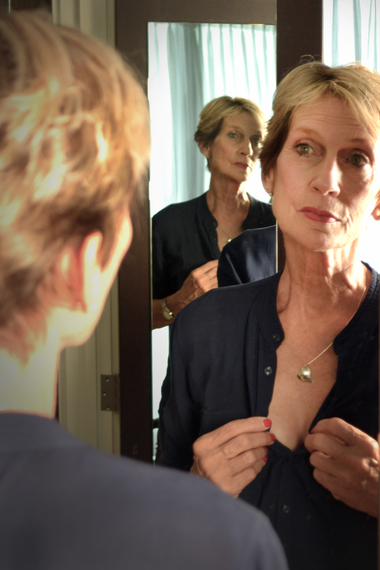Re: My ‘Naked‘ Truth (click the picture for link to original article)
I’m a little torn here. On one hand, of course objectification is bad. On the other, I’m not really sure the writer is justified in claiming to have been objectified. Does she feel entitled to her date’s arousal?
Her hurt seems to stem from multiple sources, and not all of them have to do with “a sad man named Dave”, nor his being sad or a man (he still gets demerit points for being called Dave though). Rejection is definitely hurtful, and Dave’s actual verbal response to her question is objectionable. But she asked. And it sounds like she’s faulting him for becoming emotionally-engaged with her while remaining physically-distant.
The writer mentions in the comments that her hurt stems from two factors: that “he spent 3 nights in my bed with me without telling me what was really going on”, and that “he made it my fault that he was not attracted to me”. I have nothing to say about the latter that the writer hasn’t already said: it speaks poorly of Dave, to say the least. But regarding the former…
Should a man be demeaned in turn for observing what appears to have been tact? He treated her gently and with no coldness, albeit with no heat of passion either. But can passion and desire be something we come to demand from people? We claim, in defence of what the writer calls “a self-believed inner image”, that all bodies are beautiful.
As an aesthete and a scholar, and also a man (flattering myself outrageously on all counts), I think that perhaps what we should be saying is that all bodies can be beautiful. Even a body worn by age and hard-use can be beautiful when illuminated from within by heart and mind, but it is the outward light shed by the viewer’s own perceptions that holds the decisive vote. We say that beauty is in the eye of the beholder as a sort of platitude but we don’t consider the implications of that statement.
There is no ontological certainty of beauty, only its omnipresent potentiality. Bakhtin writes that the meaning of a sentence is mediated between speaker and listener, and no less is the beauty of an object (be it the body or a work of art, or even a passing moment’s fancy) decided not only by its objective characteristics, but also by the action of the mind of its viewer. In short, we should not say whether something is beautiful or not: merely that we find it so. Perhaps even that we choose to find it so. I learned from my fiancée that a conscious act of mind on the matter of beauty can make all the difference — a choice motivated by love, respect, and affection that stem from a meeting of hearts and minds, not just pheromones.
In the case of Robin Korth and her being rebuffed sexually, she is right to do as she describes at the end: reclaim herself and assert her ownership over her body, denying the rights of others to alter her appearance to suit their whim. She is right to treat her body with “love, honour, and deep care”. But this is not the evidence of beauty that she is asserting: she is conducting an exercise of mind to enable her to perceive herself as beautiful. When she says “my body is beautiful”, all she really has the right to assert is that she has the right to find it so. I don’t think anyone is ever obliged to agree with us when we affirm how beautiful we think we are.
Now, there’s nothing wrong with that as an essential component of self-esteem. But what comes back to me is that what she holds against Dave as a character flaw might just be an error in expression. “Your body is too wrinkly” is a terrible statement to make, but “your body is too wrinkly for me” is only honesty. Are men ruined for women by porn, by the media, by their own physiological compass that points to youth and freshness and supple skin? Maybe. Dave admits as much. But I don’t think he deserves to be called ‘a sad man’ on the basis that he doesn’t find a particular person attractive, and then put his foot in his mouth when he was called out on it. Perhaps he is immature for lusting for a young woman, but he is hardly uniquely so. That the male libido cherishes youth is as a revelation hardly groundbreaking.
The writer — like everyone else — is entitled to her self-esteem, and should feel empowered to reaffirm a positive self-image. But the article itself seems to be an act of empowerment that comes at the expense of Dave, who after an earnest courtship (“he drove many miles to come to my door. He made meals for us both and ruffled my dog’s happy head”) realised that he just wasn’t that into her and apparently didn’t want to hurt her feelings by telling her outright. But his rejection of her sexually did not manifest as revulsion, or callousness, at least until he was confronted.
I dunno. I feel sorry for Dave, that despite what might be an earnest attempt at giving him credit where it was due, the writer ends up milking an unfair representation of the man in order to make herself feel better.

